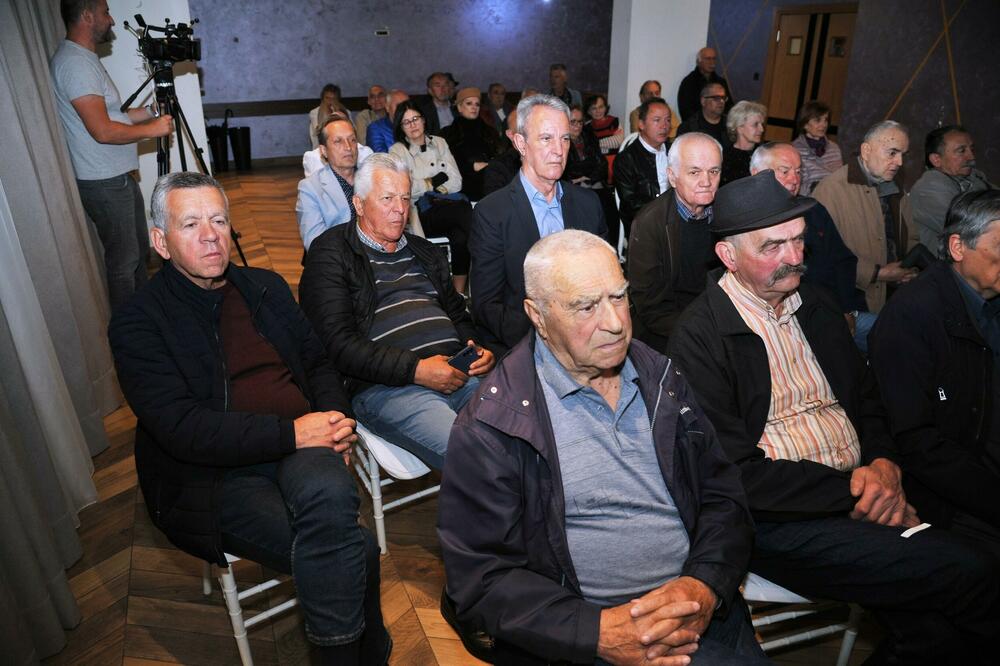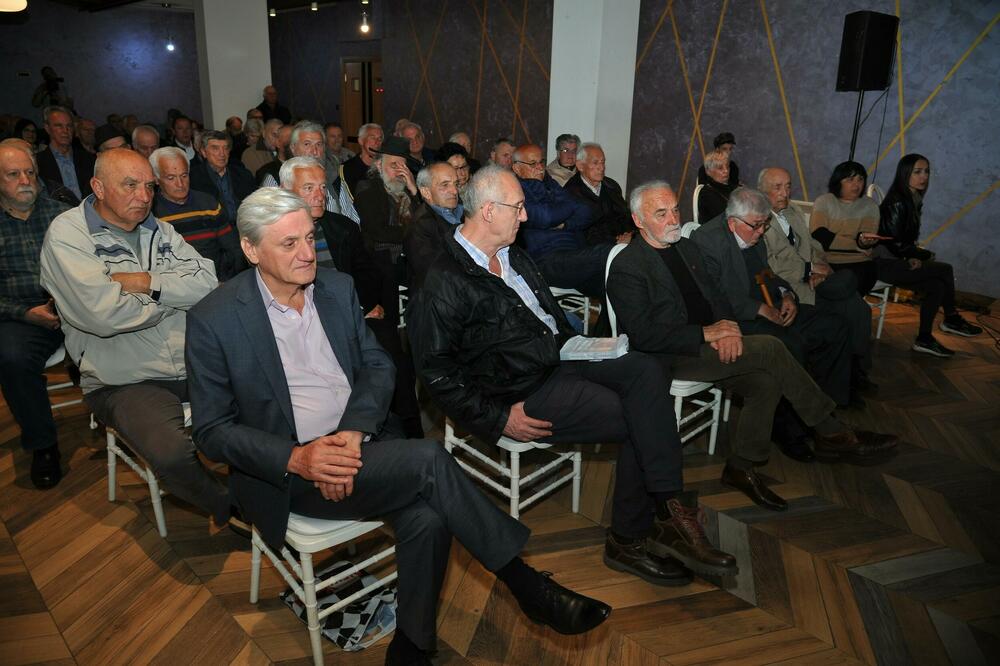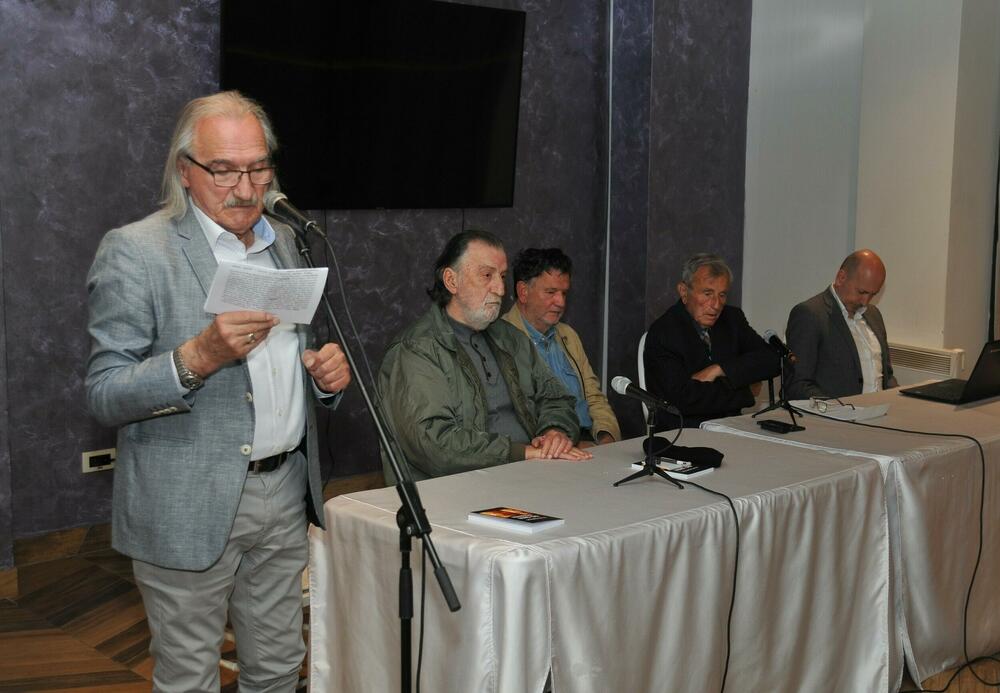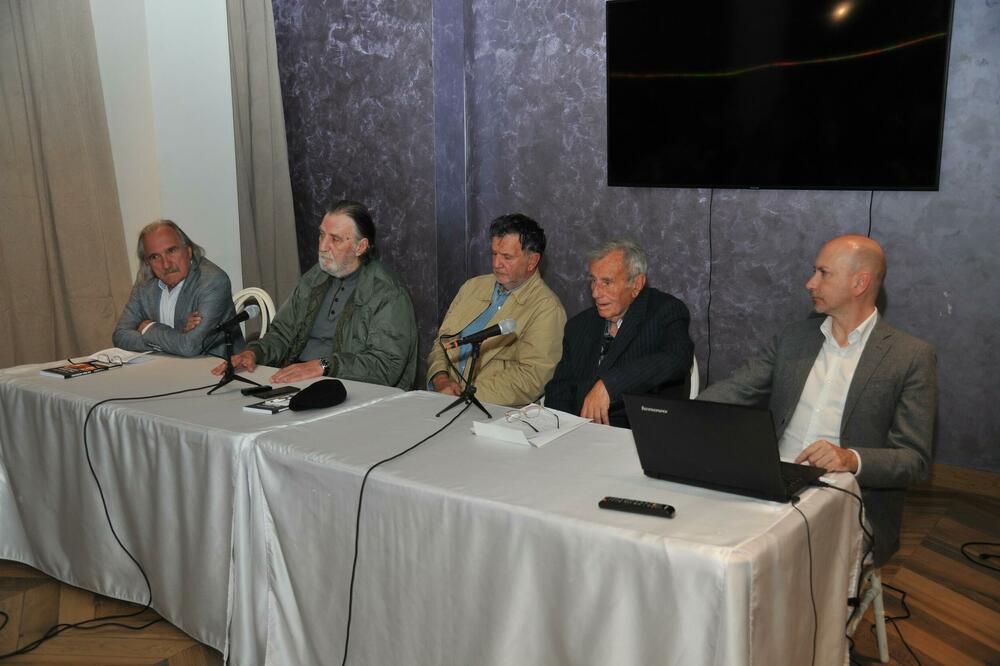The Society of Friends and Admirers of Nikšić and the Association of Fighters of the National Liberation War (UBNOR) and anti-fascists of Nikšić organized an evening of remembrance of Vejka Bulajić, one of the most important creators of domestic and world film heritage and one of the greatest directors of the former Yugoslavia. Bulajić died on April 2, and people talked about him and his work Slobodan N. Kovačević, Blagota Eraković, Branko Baletić i Andro Martinovic, while the moderator of the evening was Mirko Miro Nikolic.
According to director Blagota Eraković, Veljko Bulajić can be described as easy, complex and difficult.
"They raised him to the heavens and hated him, even mocked him. People did not put him in some middle categories. Those who loved him really loved him, and those who hated him really hated him, and I think that is the most characteristic of humanity", said Eraković.
He pointed out that Bulajić belongs to the top filmmakers from this area, that he was lucky to be in Italy when Italian cinema was at its zenith, and that he can be said to have introduced the western into partisan cinema.
"If we were to analyze Veljko's films, one by one, they differ tremendously within themselves, for example 'The Boiling City' and 'Kozara', or 'Veliki transport' and 'Neretva'... Veljko was a man known for finding money for their films where no one would find them. He was a master at providing himself with promotion, at doing what was meaningful and he should really be recognized," said Eraković.

As he pointed out, Bulajić once told him that his film "Battle of the Neretva", which was nominated for an "Oscar" in 1970, had more support from Yugoslavia. in Moscow, for one of the ten best World War II war films in the world.
"He never renounced Montenegro and loved Montenegro like any of its sons," Bulajić pointed out.
Baletić showed clips from Bulajić's films and particularly referred to the film "The Man Who Should Be Killed", about the false emperor Šćepan Mal.
"He knew how to accurately represent Russia's relationship with Montenegro through a metaphor. He put that manipulation with us through such an interesting story in the olden times. Veljko was a man who understood the times in which he lived. I would even say that in a way, as a director, he was running a decade or two ahead of the level of social consciousness in us. As it is Lalić fled to Montenegro for twenty years," said Baletic.
He also showed a clip from the film about the Church of St. Thekla in Sutomor, which had two altars, Orthodox and Catholic, as well as the tradition of throwing stones and expanding the island of Our Lady of Škrpjela and, according to Baletić, his parable of building a state and the story of Yugoslavia.
He also remembered the first time he heard about Bulajić.
"Like most Montenegrins, I enrolled in the Faculty of Law in Belgrade, and I secretly enrolled in the Academy. However, Udba finds out everything and they tell my father that his son is studying to be an actor. My father immediately calls Ratko Đurić, whom everyone knew, and asks him if it is true that I am studying for They hiccup. Čkalja was a fantastic man and actor and synonymous with actor. Đurić tells him that I am not studying for Čkalja, but for Veljko Bulajić. When I came home, my father waited for me with two glasses of brandy and the statement that he found out that I was studying for Veljko Bulajić. I asked him how he knew Veljko Bulajić and he told me how Veljko was a courier in the war at the age of fifteen, about his injury, the rank of captain," Baletić recalled.
In recent years, Andro Martinović had the opportunity to spend a lot of time with Bulajić "in conversations, meetings and trying" to get a joint project off the ground.
"There was a difference of half a century between Veljko and me, and I can say that, despite the age difference, it was not easy to follow him. Veljko was a man of exceptional energy, exceptional vitality, determined, persistent, persistent and what he took from the partisans he kept until the end. He knew how to respond and dictate tasks as if we were in a joint offensive, and I think he remained a partisan until the end," said Martinović.

He pointed out that Bulajić's interests were quite broad and that his filmography is unjustifiably reduced to partisan films, even though out of 14 films he made, only five deal with that topic. According to his opinion, the film "Kozara" opened the door to the world for him, because with that film he showed the tragedy of a nation in a "way that combined the feeling for personal losses, tragedies, showing that feature that is perhaps Montenegrin, epic and mythical". but also a feeling for a wide staff that will especially demonstrate in "Neretva".
"When I think of him as a director, I always think of his masterful organization presented in those wide and complex shots, and it seems to me that regardless of the fact that he was and remains a leftist and belonged to that partisan movement, that he is less for those films were motivated by ideology, as much as the opportunity to show something that is a pure film, a connection with westerns and with American films, and that this type of iconography was more important to him than the history or the story in that film", said Martinović.
According to him, Bulajić was a man who combined several film roles - he was an outstanding producer, a good organizer, constantly on the move and in constant attempts to fight for a film. Hence, according to him, Bulajić's relationship with the authorities, because he had to provide funds for the film, and every film requires exceptional investments.
"Even that small film requires big investments, not to mention such demanding and complex films, in which Veljko showed not only that craftsmanship and mastery, but a type of what Brešan also pointed out, the modern principles of organizing a film story on a mosaic way. In this sense, he was directed to cooperate with those who make decisions and dispose of funds", said Martinović and added that Bulajić had a full and successful life and was a man who was quite self-confident, aware of his greatness, but who also cared about to others.

Slobodan N. Kovačević, educator, publicist and chronicler of the Grahov and Viluška regions, spoke about the genesis of the Bulajić family, about the Popović branch to which Veljko's family belongs, which produced warriors, libertarians, priests, but also individuals who stood out with "clarity of mind and inclinations towards knowledge, science, art".
Bonus video:




